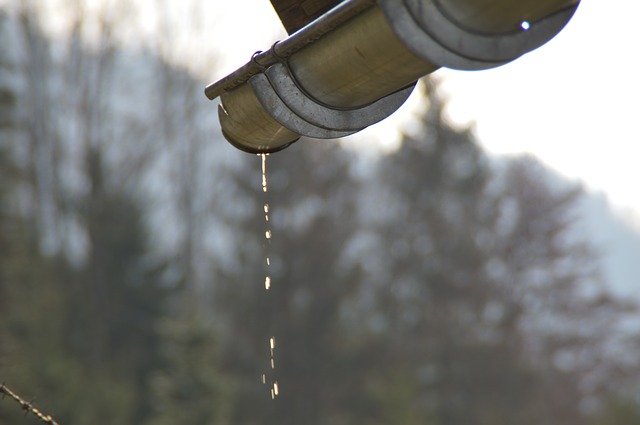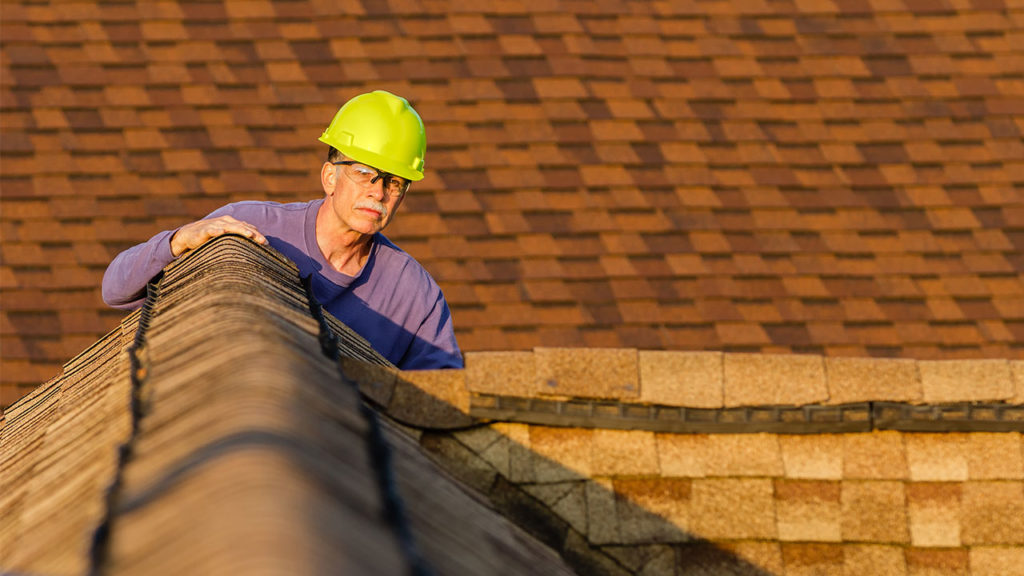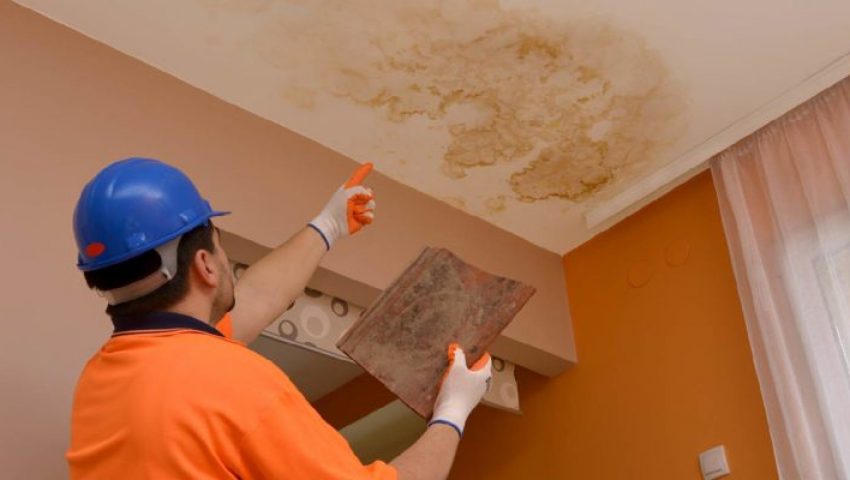Your roof is designed to be waterproof, to prevent water and melting snow from getting inside your residence or commercial building. Most rain showers will not have a significant impact on your roof, but heavy rain can penetrate the most well-built homes and businesses that have weak spots on the roof. This year in Colorado has given us a higher amount of rain than a typical year, so it’s very important to get a roof inspection to ensure your residential roof or commercial roof is healthy. These are some things to consider about how heavy rain impacts your roof.
Roof Leaks and Stains
In Colorado, the combination of extreme temperature fluctuations, high winds, and frequent hail storms can really beat up your roof and leave your property unprotected against the next big storm. With the extra punch of heavy rain, your roof is even more vulnerable. The lack of proper roof protection leads to roof leaks, stains, and the possibility for major damage.
A roof leak not only causes cosmetic damage to your walls and ceiling but contributes to mold and mildew damage. If left untreated, mold and mildew will continue to proliferate and this can lead to potential health hazards. When you see internal damage in your home or business, it’s time for a roof inspection near me. A roof inspection from a qualified Denver roofing contractor provides all the information you need to make the best decision about how to fix roof leaks.
Rotting wood
Roof shingles and flashing are designed to keep water out of your home or business. If the shingles and flashing are damaged, they won’t properly do their job of keeping the inside dry. Heavy rain, especially when it rains every day, puts your property at greater risk for water damage.
If the heavy rainwater penetrates the outer layer of roof protection, the moisture will seep into the wood that supports the roof and the walls of your home. Wet wood will rot and grow mold, and wood rot can cause structural damage to the building. As a homeowner or commercial business owner, it’s unlikely you can identify wood rot until it’s too late, and this is why regular commercial roof inspections are critical in Colorado.
Downspouts and gutters

Pine needles are a nemesis for Colorado homeowners and business owners because they clog up downspouts and gutters, especially when high winds and heavy rains bring them down from all the pine trees. When your gutters and downspouts are clogged, the rainwater collects in the gutters and backs up to the wood and shingles on the roof. Standing water is never good for the structural integrity of your roof. Regular maintenance to clear out gutters and downspouts is an important part of keeping your roof healthy.
Flashings
Many homeowners are concerned about roof hail damage after a heavy rainstorm, and they may do their own roof inspection to look for hail damage to the roof. Oftentimes, they forget to inspect the flashing, which is the thin weather-proofing material that goes between the roof and the vent pipes, skylights, and chimneys. Flashings use a sealant to prevent water leaks between the roof and headwalls, sidewalls, and roof valleys. Flashings and the sealant can sustain damage from hail and heavy rain, so it’s important to inspect the flashing during a hail damage roof inspection near me.
Roof Inspections

After a Colorado hail storm, wind storm, or days of heavy rain, you need to contact a qualified Denver roofing contractor to come to your home or business to perform a roof inspection. The Denver roof inspector will look for dings, divots, cracks, black lines, and wood rot, and the roof inspector will provide a complete report on the condition of your roof along with recommendations for repair.
At Peak to Peak Roofing, we visit your home or business to provide a free hail damage roof inspection. Our Denver roofers will recommend what roof repairs are needed, or tell you that your roof is healthy and ready for the next Colorado storm. Contact our professional roofing contractors in the Denver area for a free roof inspection near me today.

